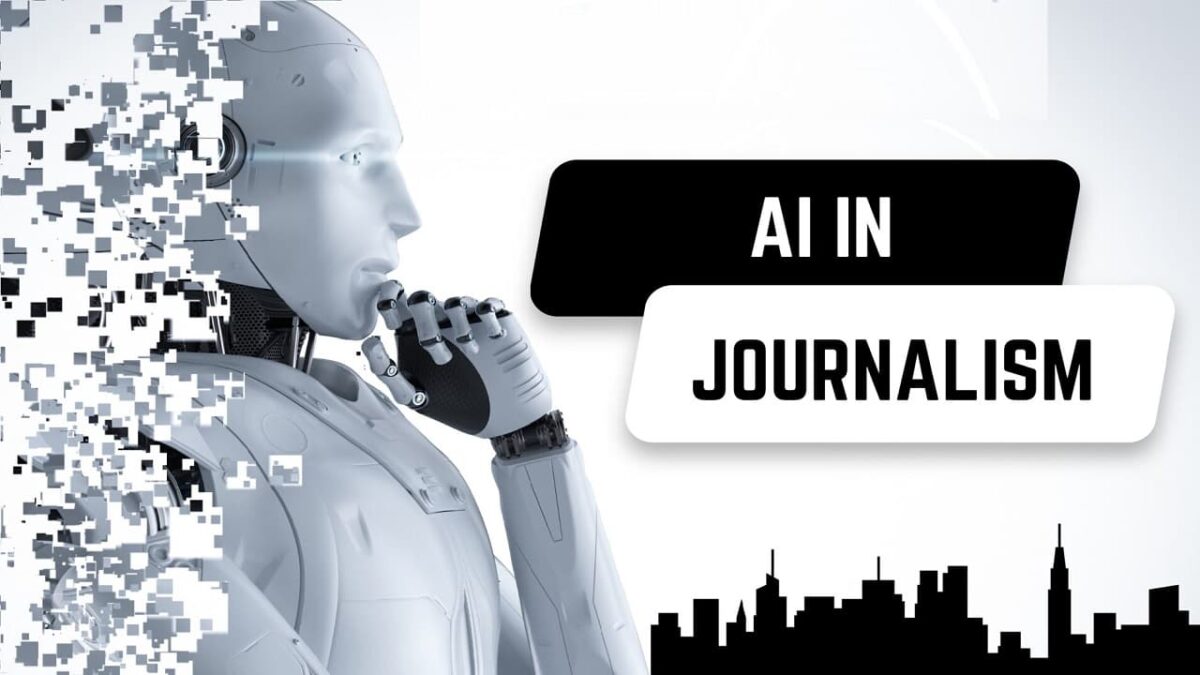
The Future of Journalism: How Artificial Intelligence Will Transform the Profession
Journalism has always been at the forefront of change — from the print era to digital platforms, from telegrams to live streams. However, with the emergence of artificial intelligence (AI), the industry is facing perhaps the most profound transformation in its history. Algorithms can now write news, analyze data, and generate unique texts in seconds. This sparks anxiety for some and excitement for others.
In the Czech Republic, as throughout Europe, news portals are actively integrating AI into their workflows. But what does this mean for journalists themselves? Will they lose their jobs, or on the contrary — gain new opportunities?
Interestingly, similar changes are taking place not only in the news sector. For example, the online entertainment industry — every created nove casino or streaming video — is already actively using algorithms to personalize the user experience. Live dealer casinos, instant bets, and news-themed slots have all become part of a large technological ecosystem where AI knows the player’s preferences better than the player themselves. Journalism is essentially moving in the same direction — from universal articles to content tailored to a specific reader.
AI Journalism: What Can Machines Already Do?
Today’s neural networks are capable of performing many functions previously considered exclusively “human.” Automated platforms like GPT already write press releases, news summaries, short sports event overviews, and even political commentary. AI can:
analyze large datasets;
identify trends on social media;
predict topics that will become relevant in the coming days.
Thanks to this, editorial teams can reduce the time required to prepare materials, focusing instead on in-depth analysis and investigative journalism. Some Czech media platforms are already experimenting with such solutions, particularly in financial and sports news, where speed and accuracy are critical.
However, AI’s true strength is not in generating texts, but in processing information. Artificial intelligence can cross-reference data from thousands of sources and offer journalists the most likely hypotheses about future developments in real time. This is especially crucial in crisis situations when every minute counts.
What Will Remain Human?
Despite AI’s impressive progress, machines still have limitations. Algorithms lack intuition, empathy, and the ability to ask uncomfortable questions. This is what sets real journalism apart from a simple flow of information. In the Czech Republic, the value of local investigations, interviews, and on-site reporting remains extremely high, especially in smaller towns and regions.
Moreover, even the most advanced AI cannot replace the voice of a reporter who has been following a case for ten years or personally knows the people involved. Such texts inspire trust — not impersonal, automated reports.
Therefore, in the future, the journalist will likely become more of a curator and analyst. Their role is not just to deliver the news but to explain why it matters and how it affects society. In this scenario, AI is a tool — not a competitor.
Challenges and Risks: Who Benefits from Automation?
One of the main challenges is the issue of credibility. Neural networks can generate convincing but completely false news — fake news that is difficult to distinguish from reality at first glance. This forces editorial teams to adopt a double-verification model: now it’s essential to verify not only facts but also the source of their generation.
Additionally, the threat of content homogenization is growing. If everyone uses the same algorithms, the diversity of styles and opinions may disappear — which is particularly dangerous for a democratic society. Czech media are already discussing the need to regulate AI use in journalism — especially in the context of political news and election campaigns.
The economic aspect should not be overlooked either. Media companies, seeking to cut costs, may lay off large numbers of staff, replacing them with automated systems. This threatens the quality and depth of materials that require time and human involvement.
New Formats and Audiences: The Journalist-Programmer Hybrid?
One promising model is the collaboration between journalists and AI in new content formats. Chatbots, podcasts, interactive long reads with AI-powered visualizations — all these are becoming new fields of experimentation. In the Czech Republic, startups are emerging that offer AI-based media products tailored to specific audience demands.
Future journalists will also have to master digital skills — programming, basic data handling, information visualization. The profession will become hybrid, combining humanistic thinking with technical fluency. Just like in the case of online casinos, where the user receives a personalized interface and game recommendations, the news reader will see content tailored precisely to their interests and current agenda.
Conclusion: Not a Replacement, but an Evolution
AI in journalism is not a catastrophe, but a logical stage of evolution. Just like teletype machines and the internet once became part of the profession — not its end — new technologies will integrate into journalistic practice. The key is not to fear change but to preserve the human essence of the profession: the pursuit of truth, analysis, and objectivity. In the Czech Republic, where trust in traditional media remains high, it will be journalists capable of working with AI who shape the future of a high-quality and transparent media landscape.